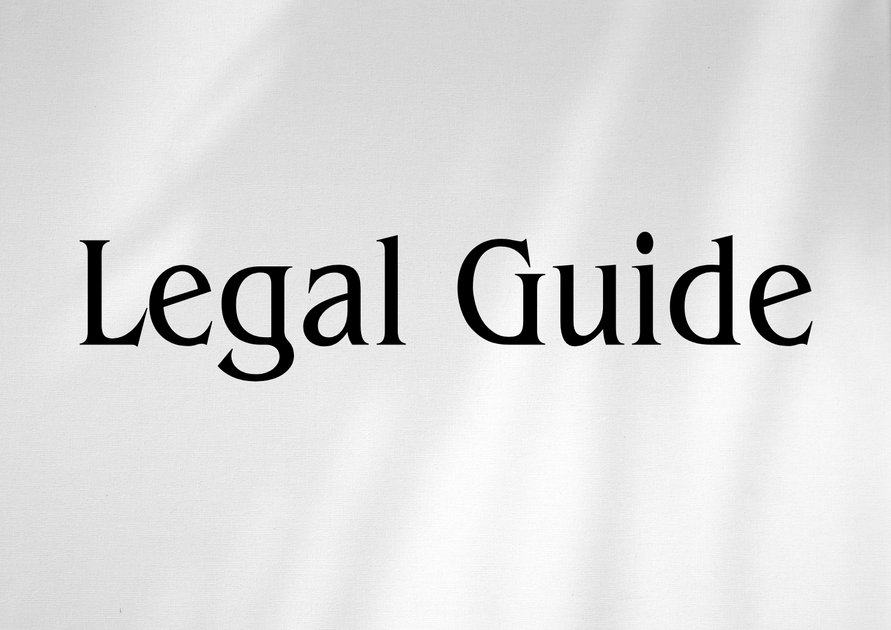Introduction
Arbitration has fast become the dispute resolution method of choice for both domestic and international business actors in the UAE. This surge in preference is underpinned by a sophisticated legal framework, most notably the UAE Federal Law No. 6 of 2018 on Arbitration (the “UAE Arbitration Law”), as amended by recent legislative updates effective into 2025. With strategic government impetus on establishing the UAE as a regional arbitration hub, understanding the procedural nuances—such as how hearings are conducted under UAE Arbitration Rules—has gained critical importance for businesses, executives, in-house counsel, and HR managers navigating contracts and potential disputes in the region.
This in-depth legal analysis unpacks the exact procedures governing arbitration hearings in the UAE, referencing official sources including the UAE Federal Legal Gazette, Ministry of Justice guidelines, and key institutional rules (such as DIAC, ADGM and DIFC-LCIA rules). We explore practical strategies, comparative insights, and compliance imperatives, empowering organizations to effectively manage arbitration risks and obligations in 2025 and beyond.
Table of Contents
- Arbitration Law Overview and Relevant Legal Framework
- Pre-Hearing Procedures and Case Management Under UAE Law
- How Arbitration Hearings Are Conducted in the UAE
- Technological Advances and Remote Hearings in 2025
- Comparison: Past vs. Present Arbitration Hearing Procedures
- Case Studies and Practical Scenarios
- Risks, Compliance Failures and Strategies for Effective Arbitration Management
- Best Practices and Forward-Looking Legal Guidance
- Conclusion and Key Takeaways
Arbitration Law Overview and Relevant Legal Framework
1.1 Legislative Foundations
The current regulatory environment for arbitration in the UAE is primarily governed by:
- Federal Law No. 6 of 2018 on Arbitration (UAE Arbitration Law), as recently interpreted and clarified by Cabinet Resolution No. 57 of 2018 and subsequent executive regulations.
- Institutional rules such as the Dubai International Arbitration Centre (DIAC) Rules 2022, Abu Dhabi Global Market (ADGM) Arbitration Regulations 2015 (with 2023 amendments), and DIFC-LCIA Arbitration Rules 2021.
Key Government Sources:
- UAE Ministry of Justice: moj.gov.ae
- Federal Legal Gazette (Official Law Texts)
- UAE Government Portal: u.ae
1.2 Purpose and Policy Objectives
The UAE Arbitration Law demonstrates clear intent to harmonize arbitration practice with international standards, promoting efficiency, fairness, and enforceability, while ensuring local legal requirements are respected. The law aims to:
- Enhance procedural flexibility for parties
- Support the conduct of effective and timely hearings
- Uphold due process and the parties’ right to be heard
The following analysis focuses specifically on how hearings are conducted within this regulatory context and what that means for stakeholders in 2025.
Pre-Hearing Procedures and Case Management Under UAE Law
2.1 Initiation of Proceedings
Once a notice of arbitration is filed, procedural groundwork is laid by reference to Articles 23–29 of the UAE Arbitration Law and institutional rules:
- Appointment of arbitral tribunal
- Submission of written statements and evidence
- Preliminary case management meetings
2.2 Procedural Timetables and Case Management Conferences
The tribunal and parties collaboratively structure the proceedings, often via an initial case management conference. The following are key issues typically decided:
- Timelines for exchange of submissions
- The extent and format of document production
- Whether hearings will be oral, written, in-person, or remote
Practical Insight: Recent UAE arbitral practices (per DIAC and ADGM rules, and reflected in court enforcement cases per Federal Law No. 6 of 2018, Article 28) empower the tribunal to balance efficiency with fairness. Structured timelines reduce delay—one of the core criticisms of legacy arbitration practice in the region.
2.3 Language and Venue Selection
The law (see Article 29) allows parties and the tribunal broad flexibility in selecting the language(s) and venue for hearings (including virtual venues). However, failure to properly designate may result in logistical or enforceability issues. Compliance with official notification requirements under the Ministerial Guidelines remains paramount.
How Arbitration Hearings Are Conducted in the UAE
3.1 The Right to Oral Hearing
UAE Arbitration Law, Article 33, explicitly affirms each party’s right to request an oral hearing, unless parties agree otherwise. This right is foundational to due process and underlines the importance of the hearing phase in dispute resolution.
3.2 Structure of the Hearing
Typical hearings in a UAE-seat arbitration include:
- Opening statements and framing of the issues by parties’ counsel
- Submission and examination of evidence (witnesses and experts)
- Cross-examination and rebuttal
- Tribunal’s questions and clarifications
- Closing statements by both parties
Tribunals have authority under Article 25 to determine the order and conduct of the hearing, subject to the parties’ rights and the requirement for equal treatment.
3.3 Treatment of Evidence
Unlike many court systems, UAE arbitration permits relaxed evidentiary rules to foster efficiency. Still, the arbitral tribunal must give each party an effective opportunity to present its case (Article 26). The approach is influenced by:
- The parties’ agreed evidentiary rules
- The tribunal’s discretion
- Applicable institutional rules (e.g. DIAC 2022 Rules, Article 28)
Parties should be aware that the Tribunal may exclude irrelevant or repetitive evidence, but cannot disregard core evidence central to the resolution of the dispute.
3.4 Witness and Expert Examination
Witnesses and experts play vital roles in arbitration hearings. Practical distinctions include:
- Written witness statements are often exchanged in advance, reducing hearing time but still allowing for oral cross-examination.
- Expert conferencing (hot-tubbing) is increasingly deployed, especially in construction and technical disputes, to streamline complex testimony.
Proper witness and expert preparation is essential and should strictly comply with the pass/fail test outlined in the Ministerial Guidelines and respective institutional rules.
3.5 Public vs. Private Hearings
UAE-seated arbitrations are presumed private and confidential under Article 33, unless the parties agree otherwise or public interest necessitates disclosure. Breaches can risk annulment of the award under Article 53, reinforcing the necessity of robust confidentiality protocols within all stages of the hearing.
3.6 The Language of the Hearing
The parties may select the language of proceedings—defaulting to Arabic in the absence of agreement, as stipulated in Article 29. Mismanagement of translation or interpretation has, in past court practice, endangered award enforceability under UAE law.
3.7 Role of the Secretariat and Administrative Support
Where institutional rules apply (such as DIAC or DIFC-LCIA), the secretariat oversees logistical arrangements—venue setup, document handling, digital security, and support for virtual hearings. Parties are advised to check compliance with applicable guidelines for both physical and remote settings.
Technological Advances and Remote Hearings in 2025
4.1 Post-Pandemic Remote Hearings
The COVID-19 pandemic catalyzed the adoption of remote and hybrid arbitration hearings in the UAE. This evolution is now enshrined in institutional rules and is underpinned by:
- Cabinet Resolution No. 57 of 2018 (as clarified in 2023)
- DIAC Rules 2022, Article 20 (express recognition of remote hearings)
Remote hearings must ensure technical safeguards, data privacy, and the integrity of testimony. Challenges such as time zone differences and witness coaching are managed through enhanced protocols and disclosure obligations.
4.2 Cybersecurity and Data Protection Considerations
With the pivot to virtual formats, compliance with UAE Cybercrime Law (Federal Decree Law No. 34 of 2021) and data protection laws must be ensured. Parties are advised to utilize officially approved video-conferencing platforms and adopt security best practices (such as end-to-end encryption and secure sharing of hearing bundles).
4.3 Flow Diagram: Virtual Hearing Procedure
Suggested Visual: A flow chart showing the steps from scheduling the hearing, technical testing, identity verification for witnesses, real-time interpretation arrangements, live recording log management, through to closing the session and preparing the transcript.
Comparison: Past vs. Present Arbitration Hearing Procedures
A concise comparison of key features before and after recent UAE arbitration law and rule updates is instructive:
| Aspect | Pre-UAE Law 2018 | Post-Law 2018 & 2025 Updates |
|---|---|---|
| Right to Oral Hearing | Implied, not explicit; seldom waived | Affirmed statutory right (Art. 33) |
| Remote Hearings | Rare, ad hoc, limited legal basis | Formally endorsed, with safeguards |
| Evidence Handling | More rigid, court-style formality | Tribunal-led, party agreement prevails |
| Confidentiality Protections | Case-by-case, less robust | Codified, strict default (Art. 33 & 53) |
| Language Management | Usually Arabic by default | Party autonomy, multi-language accepted |
| Administrative Support | Minimal, judge support | Modern secretariat, tech-enabled |
Case Studies and Practical Scenarios
5.1 Hypothetical: Construction Dispute Under DIAC Rules in 2025
A UAE-based contractor commences arbitration against an international partner under a DIAC arbitration clause. At the case management conference, the parties agree on English as the language, select a hybrid (physical + virtual) evidentiary hearing, and nominate expert witnesses on delay analysis. The arbitral tribunal structures procedural orders in accordance with DIAC 2022 and Federal Law No. 6 of 2018. Remote testimony is admitted subject to cyber verification. Award is rendered within six months—demonstrating the flexibility and efficiency enabled by the modern regime.
5.2 Past Court Challenge: Improper Exclusion of Oral Hearing
In a 2022 Dubai Court of Cassation case, the applicant sought to set aside an arbitral award due to the tribunal’s failure to hold an oral hearing after a formal request. The Court overturned the award for breaching Article 33, illustrating the critical importance of honoring parties’ rights to a hearing under UAE law.
Risks, Compliance Failures and Strategies for Effective Arbitration Management
6.1 Common Compliance Risks
- Failure to provide an oral hearing upon party request (risk of award annulment)
- Improper notice or procedural irregularities (risks under Article 53)
- Data privacy lapses in virtual proceedings, potentially violating UAE Cybercrime and Data Protection regulations
- Poor witness preparation and language mismanagement, risking procedural fairness or enforceability
6.2 Compliance Checklist Table
| Compliance Step | Law/Rule Reference | Practical Tip |
|---|---|---|
| Ensure right to request oral hearing is observed | UAE Law Art. 33 | Always confirm party wishes in case management orders |
| Verify all parties receive proper notice | Art. 28, Ministerial Guidelines | Utilize courier and email for redundancy |
| Use authorized, secure platforms for remote hearings | Cybercrime Law No. 34/2021 | Coordinate with IT and check platform certifications |
| Keep detailed record of hearings (audio/video) | Article 25, institutional rules | Retain original and backup copies |
| Appoint qualified interpreter if multilanguage | Article 29 | Source reputable, court-certified vendor |
6.3 Remedial Strategies
- Implement regular training for counsel, HR, and executive teams in updated hearing procedures
- Designate a compliance officer or legal advisor to review all procedural communications
- Perform pre-hearing technical checks for virtual and hybrid hearings, involving IT and external vendors if necessary
Best Practices and Forward-Looking Legal Guidance
7.1 Recommendations for Organizations
- Draft arbitration clauses that clarify language, venue, and rules selection to minimize ambiguity
- Engage local UAE legal counsel with arbitration specialization to ensure compliance with evolving local practices and laws
- Create hearing process maps and incident response plans for virtual proceedings
- Update policies to reflect data management, confidentiality, and witness preparation procedures
- Monitor official sources (Ministry of Justice, Federal Legal Gazette) for further 2025 regulatory updates
7.2 For In-House Counsel and HR Leaders
- Inform internal teams of the criticality of the right to request hearings and procedural fairness
- Involve technical and language experts during early arbitration planning stages
Conclusion and Key Takeaways
The UAE’s modern arbitration hearing framework, underpinned by Federal Law No. 6 of 2018 and responsive institutional rules, offers organizations new levels of procedural certainty, flexibility, and speed—provided that legal compliance is closely maintained. The essence of the updated regime is balance: robust party rights to oral proceedings, increased embrace of technology, and stricter enforceability standards. For businesses, this means increased confidence in arbitrating disputes in the UAE, and alignment with international best practices.
Looking ahead, further digital transformation and regulatory refinement are expected as the UAE cements its status as a regional and global arbitration center. Organizations are strongly advised to remain vigilant, investing in legal capacity and compliance strategies tailored to the latest legal developments. The value of timely legal advice, precise contract drafting, and operational agility cannot be overstated.




